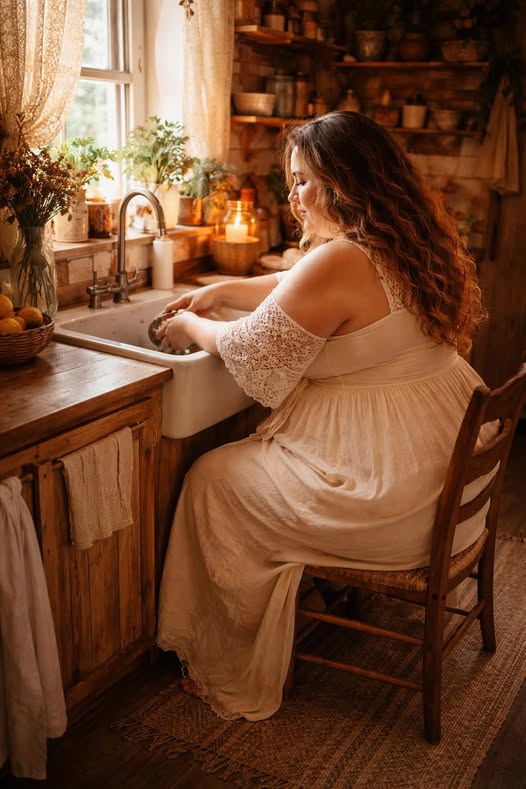The Church Who Held Space
In 2016, I walked into Galileo Church at one of the lowest points of my life.
I was broken in ways that didn’t show on the surface. I carried questions, grief, identity shifts, spiritual wrestling, and a life that felt like it was quietly slipping through my fingers. Some pieces were already gone; others hung by threads.
I had long cared about LGBTQ+ issues. Even while living mostly on the heterosexual side of my own bisexuality, I had always felt protective of spaces that were safe for others. Galileo’s openness in that area first drew me in.
But what I found there was far deeper than a single stance.
I found a kind of love that was just love—without hidden agendas or attempts to fit me into a box I wasn’t meant to fill.
I found creativity and intentionality woven into worship in ways I had never experienced before. Services weren’t thrown together—they were curated, crafted, thoughtful. Week after week, there was beauty, consistency, and substance.
It felt like someone wrapping a warmed blanket around you after standing out in the cold for far too long.
Comfort—yes.
But also challenge.
Galileo didn’t just soothe me. It ignited something in me. It called me into purpose, identity, courage, and a deeper understanding of who I was—and who God might still be inviting me to become.
Sometimes their social justice stance leaned more liberal than my moderate instincts. I won’t pretend that every position fit neatly into my personal framework. But the heart behind their message—the unmistakable love, integrity, and refusal to perform—made those differences feel secondary.
Because love and integrity that is real disarms critique.
Over time, their five missional priorities stopped feeling like slogans and started feeling like something written into my own spiritual DNA:
OUR MISSIONAL PRIORITIES:
- We do justice for LGBTQ+ people, and support the people who love them.
- We do kindness around mental illness and mental health and celebrate neurodiversity.
- We do beauty for our God-Who-Is-Beautiful.
- We do real relationship, no bullshit, ever.
- We do whatever it takes to share this good news with the world God still loves.
These priorities shaped me. They expanded my compassion. They sharpened my discernment. They reminded me that faith and honesty are not enemies.
For some Christians, Galileo’s differences from traditional structures are hard to reconcile. I understand that tension—I’ve wrestled with it myself.
But when I think about the love I encountered there—the very real, embodied, inconvenient love—any critique feels superficial, even hollow.
Let me be clear: no church can save a person. No community can be everything to everyone. I am not holding Galileo up as a gold standard for all believers. That would be unfair—and hypocritical.
But I am saying this:
God knew these were the Christians I needed.
When my life was unraveling—and at times nearly gone—this community helped anchor me. Not by fixing me or rescuing me, but by loving me into wholeness.
This blog, in many ways, exists because of the courage and permission I absorbed in that space. Because of the beauty I witnessed. Because of the honesty modeled from the pulpit. Because faith and justice were allowed to live in the same room without apology.
Ten years later, I’m still grateful.
Wrestling in the Silence: Witnesses, Not Fixers
There were seasons when I stepped away from Galileo Church because my darkness felt too heavy, my needs too great. I wrestled with God in those times, ashamed to face myself. I craved validation and acceptance in ways that were exhausting and consuming.
I remember a moment with Dr. Rev. Katie Hays that started a shift. I had flip-flopped on a choice, and in her careful explanation, she challenged me to consider: why was I so focused on her approval? It wasn’t comforting at first, but it was prophetic—a nudge back to God and my own wholeness.
Galileo Church has never been the puzzle I needed to solve my life. They weren’t the ones to put every broken piece together. But they were part of the bigger picture. They sat alongside me, witnessing, holding space, letting me wrestle, stumble, and learn what God was showing me.
They never chased me—they held space. They allowed me the solitude to “figure out” God, face myself, and understand that God’s silence wasn’t absence. It was listening. It was God letting me discover that the wholeness I sought had already been given—only obscured by doubt, shame, and external voices.
They weren’t my saviors or the puzzle. They were witnesses, companions, and custodians of a sacred space where I could be made whole—piece by piece—on my own.
Sometimes, that is the greatest gift anyone can offer: to hold space, bear witness, and trust that the work is God’s, not theirs.
About Galileo Church and Dr. Rev. Katie Hays
They can be found online at galileochurch.org. They have a vibrant in-person and online community, but first…
Origins
Galileo Church is a non-traditional Christian congregation in Fort Worth, Texas. It launched in 2013, led by Rev. Dr. Katie Hays, who previously served nearly two decades in traditional ministry before starting Galileo with younger adults seeking a different faith community.
Mission and Identity
Galileo describes itself as a “next-church community of belonging in Jesus’ name.” It is welcoming and affirming to those excluded or hurt by traditional churches—especially LGBTQ+ people, neurodiverse individuals, and “spiritual refugees.”
Worship & Community
Galileo holds Sunday worship at 5 pm (Central) on the I-20 service road in southeast Fort Worth and offers a livestream. Community outreach includes initiatives like Finn’s Place, a center for transgender and gender-diverse youth. Though structured as its own nonprofit, it grew from Galileo’s mission and Dr. Hays’s leadership.
Leadership & Perspective
Dr. Rev. Katie Hays writes sermons, blogs, and pastoral letters on inclusive theology, justice, and spirituality. She has been featured in Christian publications and recognized as a voice for inclusive ministry. Many of her books are available on Amazon, Barnes & Noble, and other retailers.
If this sounds like a place you’d like to experience—online or in-person—check them out!

